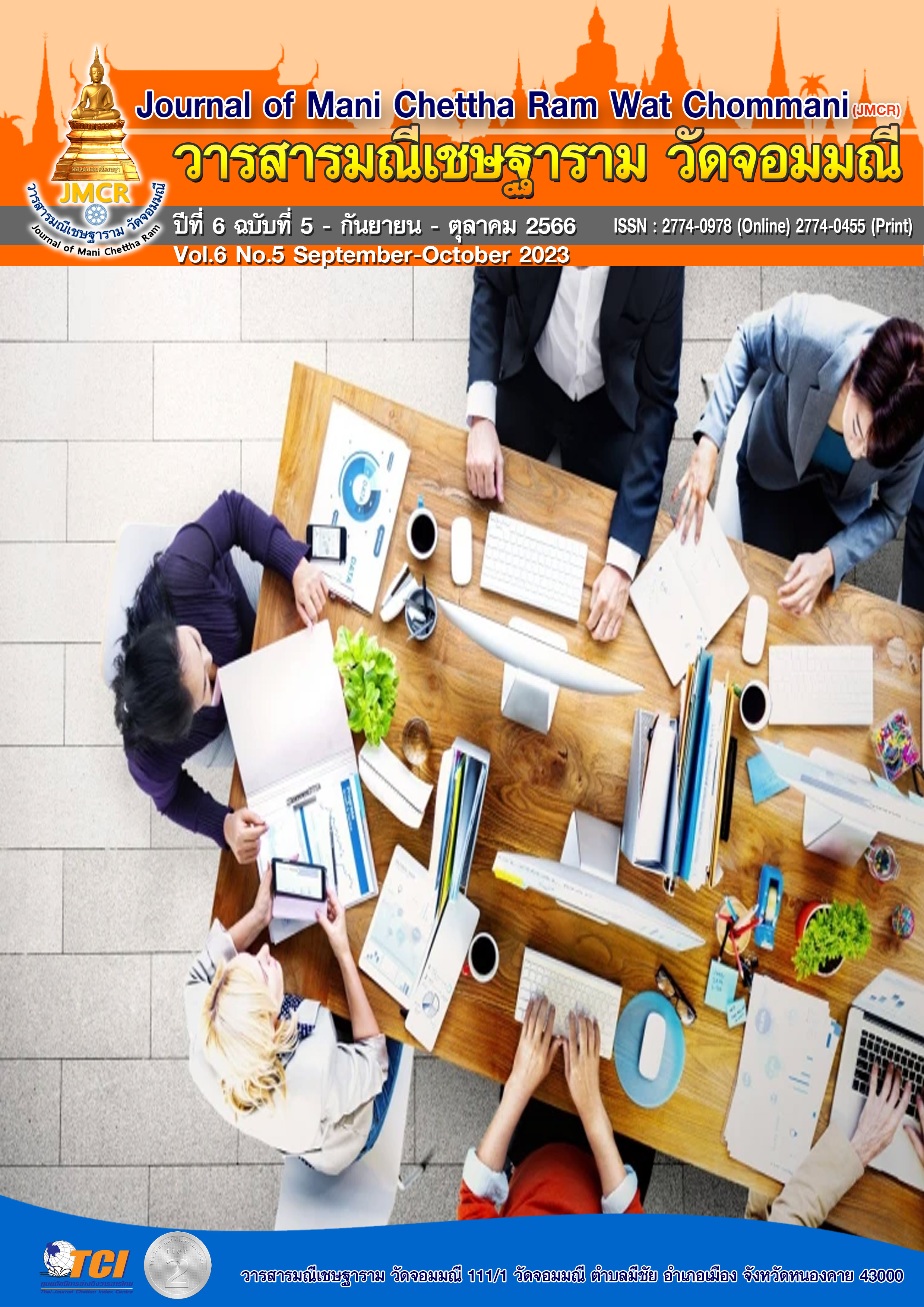STRATEGIES FOR IMPLEMENTATION OF THE SANGHA AFFAIRS ADMINISTRATION POLICY AFFECTING THE ADMINISTRATION ACCORDING TO GOOD GOVERNANCE PRINCIPLES OF MONKS IN WAT SING DISTRICT CHAINAT PROVINCE
Keywords:
Strategy, Putting the Policy into Practice, Administration of Sangha Affairs, Good Governance PrincipleAbstract
The objectives of this study were 1. to examine administration level according to good governance principles of monks, 2. to analyze implementation strategies of the Sangha affairs administration policy into practice affecting the administration according to good governance principles, and 3. to propose guidelines for administration according to good governance principles for monks in Wat Sing District. The research methodology was mixed method. The study conceptual framework was applied from concepts of The Sangha Act, B.E.2505; Good Governance Principles B.E.2542. The study population were 250 Monks. The sample size of 152 monks was determined by Krejci and Morgan table. Fifteen abbots, deputy abbots and monks were interviewed. The study instruments were an interviewed form and a five level rating scales questionnaire. The interviewed data were analyzed by content analysis. Statistics used for data analysis were frequency, percentage, mean, standard deviation, and multiple regression.
The study results revealed that 1. administration level according to good governance principles as a whole was at a much level. When considering each aspect respectively by mean from high to low found that all 6 aspects were at much levels consisted of participation, morality, responsibility, worthiness, transparency, and the rule of law. 2. The analysis results of the strategies for implementing the Sangha affairs administration policy into the practice of the Sangha Administrators found that governing factor, welfare education, public utility could affect the administration according to good governance principles at 89.7 % with a statistically significant level of .01. and 3. Guidelines for administration according to good governance principle in Wat Sing District Chainat Province including organizing a knowledge development project, increasing executive management skills to keep up with changes, adhering to the principle of equality, being fair, follow up, examining and evaluating performance.
References
ธนกฤต โพธิ์เงิน (2556).ปัจจัยด้านการบริหารจัดการตามหลักธรรมาภิบาลมีผลต่อประสิทธิผลการบริหารงานขององค์การบริหารส่วนตำบลในเขตจังหวัดปทุมธานี. ใน ปริญญารัฐประศาสนศาสตรดุษฎีบัณฑิต. มหาวิทยาลัยปทุมธานี.
เบญจ์ พรพลธรรม. (2553). การจัดการความโปร่งใสและการมีส่วนร่วมในบริการสาธารณะขององค์กรปกครองส่วนท้องถิ่น. ใน สาขาวิชารัฐศาสตร์. มหาวิทยาลัยรามคำแหง.
พระธรรมปิฎก (ป.อ.ปยุตฺโต). (2542). พรตลอดปี ชีวิตดีตลอดไป. กรุงเทพมหานคร : สหธรรมิก.
______. (2543ก). พุทธธรรม ฉบับปรับปรุงและขยายความ. พิมพ์ครั้งที่ 9. กรุงเทพมหานคร: มหาจุฬาลงกรณราชวิทยาลัย.
ภัทรานิษฐ์ สุครีวานัด. (2557). ความคิดเห็นของประชาชนต่อการใช้หลักธรรมาภิบาลขององค์การบริหารส่วนตำบลเสนา อำเภออุทัย จังหวัดพระนครศรีอยุธยา. ใน ค้นคว้าอิสระรัฐประศาสนศาสตร์มหาบัณฑิต สาขาวิชารัฐประศาสนศาสตร์. มหาวิทยาลัยราชภัฏพระนครศรีอยุธยา.
มหาวิทยาลัยธรรมศาสตร์. (2544). บทบาทพระสงฆ์ : ผู้นำสังคมในการอนุรักษ์มรดกศิลปวัฒนธรรมไทย. พิมพ์ครั้งที่ 1. กรุงเทพมหานคร: มหาวิทยาลัยธรรมศาสตร์.
วัดทรงเสวย. (2563). ประชุมการเผยแผ่ฯ ขยายผลขับเคลื่อนโครงการวัด ประชา รัฐ สร้างสุข. เรียกใช้เมื่อ 11 ตุลาคม 2565 จาก https://www.wat3579.com/news/news/detail/var/84o274
สำนักงานพระพุทธศาสนาจังหวัดชัยนาท. (2565). พระภิกษุที่มีสังกัดวัดในพื้นที่เขตการปกครองคณะสงฆ์ในอำเภอวัดสิงห์ จังหวัดชัยนาท (มหานิกาย). เรียกใช้เมื่อ 11 ตุลาคม 2565 จาก https://cnt.onab.go.th/th/content/page/index/id/5286
เสกสรรค์ นิสัยกล้า. (2550). การนำนโยบายธรรมาภิบาลไปปฏิบัติ : กรณีศึกษากรุงเทพมหานคร. ใน สาขาวิชารัฐประศาสนศาสตร์. มหาวิทยาลัยรามคำแหง.




